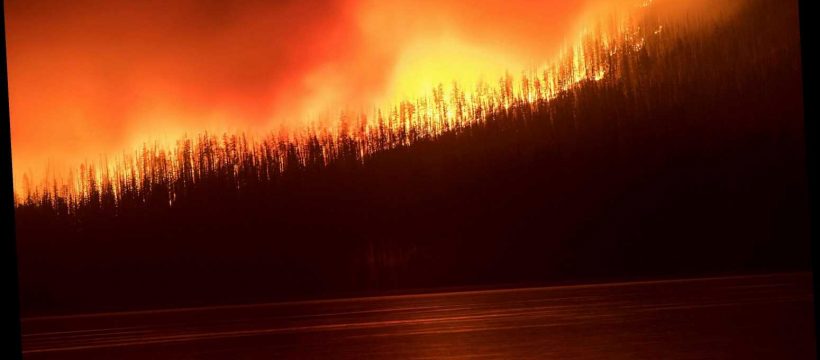THE phrase is frequently heard in disaster movies but happens more in real life than people might think.
President Donald Trump was poised to declare a national emergency to deal with the coronavirus outbreak across the US on Friday, March 13.
Many US state governors had already declared a state of emergency in their jurisdictions earlier as the virus took hold.
But what exactly does it mean?
What is a state of emergency?
A state of emergency is a situation which allows the government increase powers in the area.
It can be declared for a number of reasons including civil unrest or a natural disaster.
In some extreme cases it can mean that martial law is put into effect.
What happens when one is declared?
A state of emergency gives the government a wide range of special powers to deal with the situation at hand.
In the US, the President can declare an emergancy at a national level which brings 500 federal laws into effect.
State governors or mayors can also declare a state of emergency covering their jurisdiction.
It varies from country to country but things that could be invoked by the government following the declaration are:
- In some cases, conscript citizens to help with efforts to manage the emergency
- In others, to authorise qualified citizens to assist in emergency management efforts
- Confiscate equipment and property that will assist in emergency management
- Make goods and resources available for distribution to those areas impacted
- Fix prices of goods and services, to avoid incidences of "price gouging"
- Impose a curfew on residents of the affected areas
- Prohibit, or at least limit, travel to, from or within the areas impacted by the emergency
- Establish emergency shelters
- Enter any building without a warrant
- Order residents to evacuate the affected areas
When has the US declared a state of emergency?
Here's a list of a few times when a state of emergency has been enforced in the US:
- North Carolina governor Roy Cooper declared a state of emergency after Hurricane Florence headed towards the state, and shortly after Virginia followed suit.
- Florida Gov. Rick Scott issued a state of emergency due to impacts of red tide on August 13, 2018. He said: “As Southwest Florida and the Tampa Bay area continues to feel the devastating impacts of red tide, we will continue taking an aggressive approach by using all available resources to help our local communities. Today, I am issuing an emergency declaration to provide significant funding and resources to the communities experiencing red tide so we can combat its terrible impacts."
- President Donald Trump declared a state of emergency in California in January 2019 when a series of deadly wildfires ravaged the state.
- During the Congressional shutdown of early January in 2019, Mike Pence and President Trump have explored the possibility of circumventing Congress in order to have the Mexico border wall built.
- President George W. Bush declared a state of emergency in the aftermath of Hurricane Katrina in 2005.
- The United States has technically been in a state of emergency since September 14 2001. It was declared in the wake of the 9/11 terror attacks and has been extended every year since.
Source: Read Full Article


